Man Booker prize 2013
>> Wednesday, July 24, 2013
The longlist for the 2013 Man Booker Prize was announced yesterday. In the past few years, I've found quite a few excellent reads amongst the listed books. Last year I decided to read all the books on the shortlist, so that I could have an informed opinion about who should win. I didn't finish them all, as a few really didn't work for me, but I read enough that I got a sense of them. Here's my post about it. I loved doing this, and as a result, I enjoyed following the prize much more than usual.
I'm planning to do the same this year. It will be difficult, as quite almost half of the longlisted books aren't out yet (and 3 of them won't come out until after the shortlist is announced on September 11). Still, I'll do my best to get them read, or at least started, by the time the winner is announced on October 16.
Here is the list and summaries, ordered by how badly I want to read them, purely based on blurbs and early reviews.
Extremely interested, would probably start with these
The Luminaries Eleanor Catton (published Sep 5)
It is 1866, and Walter Moody has come to make his fortune upon the New Zealand goldfields. On arrival, he stumbles across a tense gathering of twelve local men, who have met in secret to discuss a series of unsolved crimes. A wealthy man has vanished, a whore has tried to end her life, and an enormous fortune has been discovered in the home of a luckless drunk. Moody is soon drawn into the mystery: a network of fates and fortunes that is as complex and exquisitely patterned as the night sky. The Luminaries is an extraordinary piece of fiction. It is full of narrative, linguistic and psychological pleasures, and has a fiendishly clever and original structuring device. Written in pitch-perfect historical register, richly evoking a mid-19th century world of shipping and banking and goldrush boom and bust, it is also a ghost story, and a gripping mystery. It is a thrilling achievement for someone still in her mid-20s, and will confirm for critics and readers that Catton is one of the brightest stars in the international writing firmament.
The Kills, by Richard House
Camp Liberty is an unmanned staging-post in Amrah province, Iraq; the place where the detritus of the war is buried, incinerated, removed from memory. Until, suddenly, plans are announced to transform it into the largest military base in the country, codenamed the Massive, with a post-war strategy to convert the site for civilian use.
Contracted by HOSCO, the insidious company responsible for overseeing the Massive, Rem Gunnerson finds himself unwittingly commanding a disparate group of economic mercenaries at Camp Liberty when the mysterious Stephen Lawrence Sutler arrives. As the men are played against each other by HOSCO the situation grows increasingly tense. And then everything changes. An explosion. An attack on a regional government office. When the dust settles it emerges that Sutler has disappeared, and over fifty million dollars of reconstruction funds are missing.
Sutler finds himself accused and on the run. Gunnerson and his men want revenge for months of abuse and misinformation. Out of the chaos a man named Paul Geezler rises to restore order, a man more involved than he’s willing to admit.
And then there’s the vicious murder of an American student in Italy. A murder that replicates exactly the details of a well-known novel.
Intrigued, sound like something I might like
Five Star Billionaire, by Tash Aw
Phoebe has come to China buoyed with hope, but her dreams are shattered as the job she was promised seems never to have existed. Gary is a successful pop star, but his fans disappear after a bar-room brawl. Yinghui was once a poetry-loving activist and is not sure how she became a wealthy businesswoman. Justin works hard for his powerful family, but begins to wonder if his efforts are appreciated. And then there is the Five Star Billionaire himself, pulling the strings of destiny, his lessons for success unsettling the dynamics of these disparate lives.
Harvest, by Jim Crace
As late summer steals in and the final pearls of barley are gleaned, a village comes under threat. A trio of outsiders – two men and a dangerously magnetic woman – arrives on the woodland borders and puts up a make-shift camp. That same night, the local manor house is set on fire.
Over the course of seven days, Walter Thirsk sees his hamlet unmade: the harvest blackened by smoke and fear, the new arrivals cruelly punished, and his neighbours held captive on suspicion of witchcraft. But something even darker is at the heart of his story, and he will be the only man left to tell it...
The Marrying of Chani Kaufman, by Eve Harris (published Sep 19)
19 year-old Chani lives in the ultra-orthodox Jewish community of North West London. She has never had physical contact with a man, but is bound to marry a stranger. The rabbi’s wife teaches her what it means to be a Jewish wife, but Rivka has her own questions to answer. Soon buried secrets, fear and sexual desire bubble to the surface in a story of liberation and choice; not to mention what happens on the wedding night...
The Lowland, by Jhumpa Lahiri (published Sep 26)
From Subhash’s earliest memories, at every point, his brother was there. In the suburban streets of Calcutta where they wandered before dusk and in the hyacinth-strewn ponds where they played for hours on end, Udayan was always in his older brother’s sight.
So close in age, they were inseparable in childhood and yet, as the years pass – as U.S tanks roll into Vietnam and riots sweep across India – their brotherly bond can do nothing to forestall the tragedy that will upend their lives. Udayan – charismatic and impulsive – finds himself drawn to the Naxalite movement, a rebellion waged to eradicate inequity and poverty. He will give everything, risk all, for what he believes, and in doing so will transform the futures of those dearest to him: his newly married, pregnant wife, his brother and their parents. For all of them, the repercussions of his actions will reverberate across continents and seep through the generations that follow.
Unexploded, by Alison MacLeod (published Sep 5)
May 1940, Brighton. On Park Crescent, Geoffrey and Evelyn Beaumont and their eight-year-old son, Philip, anxiously await news of the expected enemy landing on their beaches.
It is a year of tension and change. Geoffrey becomes Superintendent of the enemy alien camp at the far reaches of town, while Philip is gripped by the rumour that Hitler will make Brighton's Royal Pavilion his English HQ.
As the rumours continue to fly and the days tick on, Evelyn struggles to fall in with the war effort and the constraints of her role in life, and her thoughts become tinged with a mounting, indefinable desperation.
Then she meets Otto Gottlieb, a 'degenerate' German-Jewish painter and prisoner in her husband's internment camp. As Europe crumbles, Evelyn's and Otto's mutual distrust slowly begins to change into something else,
which will shatter the structures on which her life, her family and her community rest. Love collides with fear, the power of art with the forces of war, and the lives of Evelyn, Otto and Geoffrey are changed irrevocably.
A Tale for the Time Being, by Ruth Ozeki
Ruth discovers a Hello Kitty lunchbox washed up on the shore of her beach home. Within it lies a diary that expresses the hopes and dreams of a young girl. She suspects it might have arrived on a drift of debris from the 2011 tsunami. With every turn of the page, she is sucked deeper into an enchanting mystery.
In a small cafe in Tokyo, 16-year-old Nao Yasutani is navigating the challenges thrown up by modern life. In the face of cyberbullying, the mysteries of a 104-year-old Buddhist nun and great-grandmother, and the joy and heartbreak of family, Nao is trying to find her own place - and voice - through a diary she hopes will find a reader and friend who finally understands her.
Hmmm, let's see
We Need New Names, by NoViolet Bulawayo
Darling and her friends live in a shanty called Paradise, which of course is no such thing. It isn't all bad, though. There's mischief and adventure, games of Find bin Laden, stealing guavas, singing Lady Gaga at the tops of their voices. They dream of the paradises of America, Dubai, Europe, where Madonna and Barack Obama and David Beckham live.
For Darling, that dream will come true. But, like the thousands of people all over the world trying to forge new lives far from home, Darling finds this new paradise brings its own set of challenges - for her and also for those she's left behind.
Almost English, by Charlotte Mendelson (published Aug 15)
In a tiny flat in West London, sixteen-year-old Marina lives with her emotionally-delicate mother, Laura, and three ancient Hungarian relatives. Imprisoned by her family’s crushing expectations and their fierce unEnglish pride, by their strange traditions and stranger foods, she knows she must escape. But the place she runs to makes her feel even more of an outsider.
At Combe Abbey, a traditional English public school for which her family have sacrificed everything, Marina realises she has made a terrible mistake. She is the awkward half-foreign girl who doesn't know how to fit in, flirt or even be. And as a semi-Hungarian Londoner, who is she? In the meantime, her mother, Laura - an alien in this strange universe -, has her own painful secrets to deal with, especially the return of the last man she’d expect back in her life. She isn’t noticing that, at Combe Abbey, things are starting to go terribly wrong.
The Testament of Mary, by Colm Tóibín
In a voice that is both tender and filled with rage, The Testament of Mary tells the story of a cataclysmic event which led to an overpowering grief. For Mary, her son has been lost to the world, and now, living in exile and in fear, she tries to piece together the memories of the events that led to her son's brutal death.
To her he was a vulnerable figure, surrounded by men who could not be trusted, living in a time of turmoil and change. As her life and her suffering begin to acquire the resonance of myth, Mary struggles to break the silence surrounding what she knows to have happened. In her effort to tell the truth in all its gnarled complexity, she slowly emerges as a figure of immense moral stature as well as a woman from history rendered now as fully human.
The Spinning Heart, by Donal Ryan (published Oct 11)
In the aftermath of Ireland’s financial collapse, dangerous tensions surface in an Irish town. As violence flares, the characters face a battle between public persona and inner desires. Through a chorus of unique voices, each struggling to tell their own kind of truth, a single authentic tale unfolds.
Not particularly tempted
TransAtlantic, by Colum McCann
TransAtlantic tells the story of four generations of women. Spanning the onset of the Irish potato famine in 1845, the American Civil War and the more recent troubles in Northern Ireland, it is an epic and engrossing story of slavery, poverty, struggle and survival.
1919. Emily Ehrlich watches as two young airmen, Alcock and Brown, emerge from the carnage of World War One to pilot the very first non-stop transatlantic flight from Newfoundland to the west of Ireland. Among the mail being carried on the aircraft is a letter which Emily’s mother, Lily, wrote when she first left Ireland in 1845. The letter will not be opened for almost one hundred years.
1845. Lily Duggans is just seventeen years old and living as a maid when Frederick Douglass, a black American slave, lands in Ireland to champion ideas of democracy and freedom, only to find a famine unfurling at his feet. On his travels he inspires Lily to go to New York and embrace a free world, but the land does not always fulfill its promises for her. From the violent battlefields of the Civil War to the ice lakes of northern Missouri, it is her youngest daughter Emily who eventually finds her way back to Ireland.
1998. Senator George Mitchell criss-crosses the ocean in search of an elusive Irish peace. How many more bereaved mothers must he meet before an agreement can be reached?
Can we cross from the new world to the old? How does the past shape the future? In TRANSATLANTIC, Colum McCann has achieved an outstanding act of literary bravura. Intricately crafted, poetic and deeply affecting it weaves together personal stories to explore the fine line between what is real and what is imagined, and the tangled skein of connections that make up our lives.




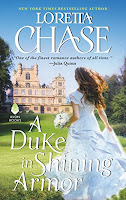
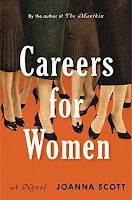
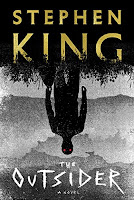
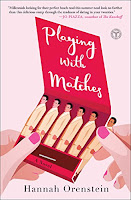
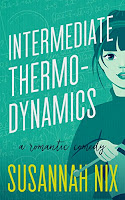
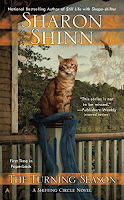
2 comments:
Transatlantic is probably the quality book of the 13. What's your beef?
Mainly lots of comments in the reviews I checked saying how he managed to make what should have been fascinating subject matter boring, and that it was all style, no substance. Just from the blurb it sounded really interesting, though, so I'd be very happy to be wrong in my initial judgement. Have you read some of the others, then?
Post a Comment